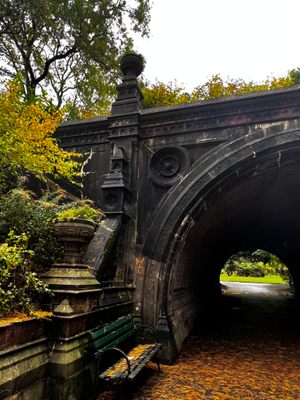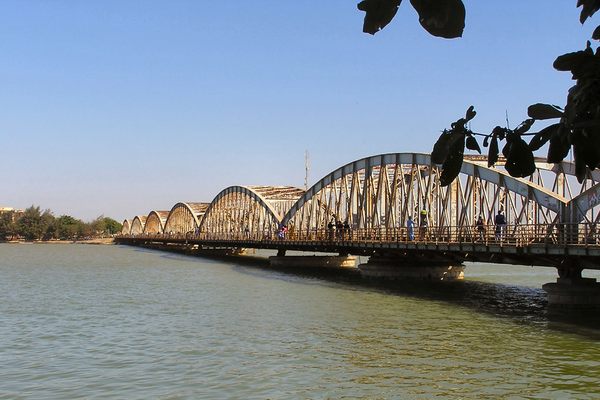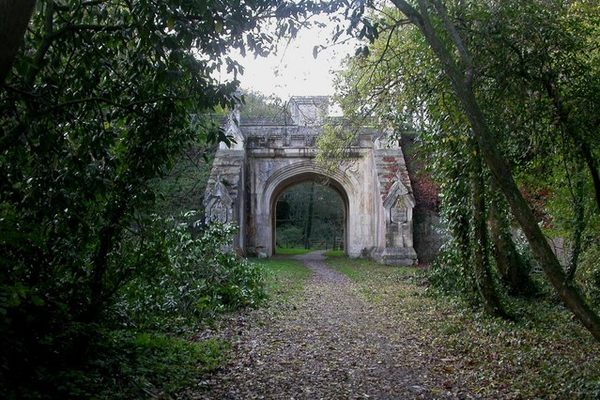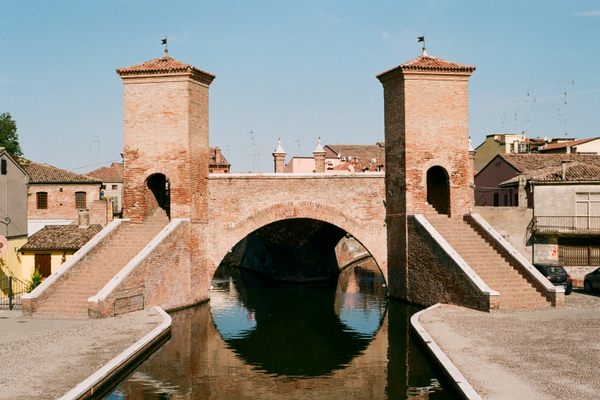About
The bridges of Prospect Park run the gamut from rustic to elaborate, but one phrase not usually used to describe them is technologically groundbreaking. However, the Cleft Ridge Span is just that. The bridge's elaborate tile work isn't composed of terra cotta or carved stone but cast concrete; a new advent at the time of the span's construction.
The idea to use cast concrete was an experiment of sorts. Originally, the plan was to use brick or granite, but park designers Olmsted and Vaux proposed a new mixture to save money. Cast concrete, also known as Béton Coignet after its creator Francois Coigne, was brought to the United States in 1869 by the New York & Long Island Coignet Stone Company. It was this firm that Olmsted and Vaux collaborated with to construct the Cleft Ridge Span. When the span was completed in 1872, the company also completed construction on its headquarters along the Gowanus Canal.
Because the span utilized a repeating pattern, it was easy to cast the elaborate design for its ceiling. It also saved the park a large sum of money, with the final cost amounting to $20,000. Utilizing stone during construction would have cost over 10 times the amount.
Less successful, however, was the idea to add color to the cast concrete tiles. While the exterior designs were left an au naturel gray, the interior was meant to be colored red, yellow, and blue. The coloring was faint and, over time, faded to the pale greenish hue that is seen today. After two years of wear and tear, Olmsted and Vaux were highly satisfied with the span's durability and recommended that cast concrete be used in the construction of a fountain basin at Grand Army Plaza.
In addition to its elaborate design, the span is also appreciated by park-goers for how well it reverberates sound. Occasionally, a musician may set up underneath to take advantage of the acoustics.
Related Tags
Know Before You Go
The span is located just north of the Concert Grove, connecting that area with the boathouse. The closest park entrance is on Lincoln Road. Visitors can find the span by crossing East Drive and then taking the path that leads down.
Published
September 10, 2020




























